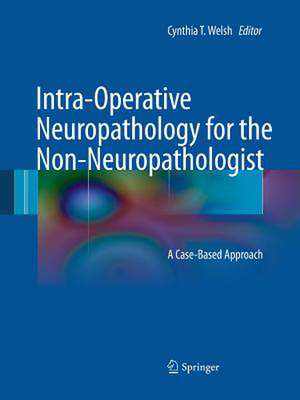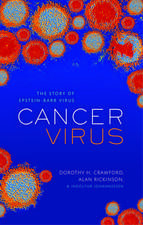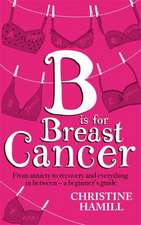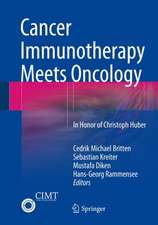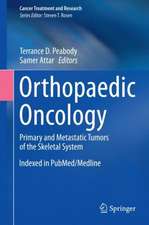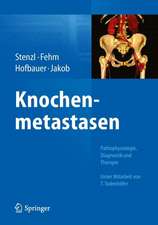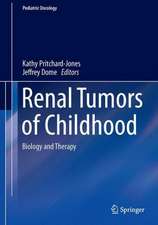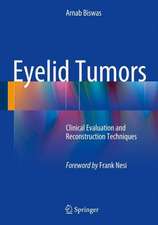Intra-Operative Neuropathology for the Non-Neuropathologist: A Case-Based Approach
Editat de Cynthia T. Welshen Limba Engleză Paperback – 23 aug 2016
An introductory chapter presents the pros and cons of cytology, the advantages and disadvantages of frozen sections, and the artifacts in both. Also included is an argument for knowing what the scans reveal, and the impact of relevant patient history. The volume uses a case-based approach to show correlation between scan, history, frozen section and cytologic preparations.
With the combination of extensive correlation of scans, cytology, and frozen section with differential diagnosis, and analysis of the information crucial to the neurosurgeon in a case-based approach and with a special chapter written by a neuroradiologist, this volume is unique in presentation and utility and will be of great value to the trainee in pathology (residents/fellows), and practicing pathologists who include neuropathology in their practice, but do not have formal fellowship training in neuropathology.
| Toate formatele și edițiile | Preț | Express |
|---|---|---|
| Paperback (1) | 905.17 lei 6-8 săpt. | |
| Springer – 23 aug 2016 | 905.17 lei 6-8 săpt. | |
| Hardback (1) | 1161.31 lei 38-44 zile | |
| Springer – 22 dec 2011 | 1161.31 lei 38-44 zile |
Preț: 905.17 lei
Preț vechi: 952.81 lei
-5% Nou
Puncte Express: 1358
Preț estimativ în valută:
173.22€ • 188.10$ • 145.51£
173.22€ • 188.10$ • 145.51£
Carte tipărită la comandă
Livrare economică 22 aprilie-06 mai
Preluare comenzi: 021 569.72.76
Specificații
ISBN-13: 9781493940455
ISBN-10: 1493940457
Pagini: 170
Ilustrații: IX, 170 p.
Dimensiuni: 210 x 279 x 15 mm
Greutate: 0.42 kg
Ediția:Softcover reprint of the original 1st ed. 2012
Editura: Springer
Colecția Springer
Locul publicării:New York, NY, United States
ISBN-10: 1493940457
Pagini: 170
Ilustrații: IX, 170 p.
Dimensiuni: 210 x 279 x 15 mm
Greutate: 0.42 kg
Ediția:Softcover reprint of the original 1st ed. 2012
Editura: Springer
Colecția Springer
Locul publicării:New York, NY, United States
Cuprins
The Role of Clinical-Pathologic Correlation and Use of Cytologic Preparations in Intra-Operative Neuropathology Consultation.-Neuroradiology as a Tool in Neuropathologic Diagnosis of Intracranial Masses.- The Supratentorial Mass in an Adult.- The Infratentorial Intra-Axial Tumor.- The Base of Skull (Including Pineal and Sella Turcica Regions) Lesion.- The Spinal Neoplasm in an Adult.
Recenzii
From the reviews:
“This book takes a case-based approach to the interpretation of frozen sections and smears for the non-neuropathologist. … this book is intended for non-neuropathologists. … will definitely keep it as a reference on my shelf of important books. The location-based development of differential diagnoses and the inclusion of neuroimaging characteristics make this the perfect book for the non-neuropathology fellowship-trained pathologist. I highly recommend it as a worthy addition to the books available in the frozen section area of any practice.” (Maura F. O’Neil, Doody’s Review Service, April, 2012)
“This book takes a case-based approach to the interpretation of frozen sections and smears for the non-neuropathologist. … this book is intended for non-neuropathologists. … will definitely keep it as a reference on my shelf of important books. The location-based development of differential diagnoses and the inclusion of neuroimaging characteristics make this the perfect book for the non-neuropathology fellowship-trained pathologist. I highly recommend it as a worthy addition to the books available in the frozen section area of any practice.” (Maura F. O’Neil, Doody’s Review Service, April, 2012)
Textul de pe ultima copertă
This volume acquaints the non-neuropathologist with the advantages of clinical-radiologic-pathologic correlation in neuropathology specimens, particularly in the intra-operative environment. This volume covers the enormous and sometimes insurmountable artifacts involed with freezing tissue, especially central nervous system tissue and how a good cytology preparation can add to, or even supply in isolation, a diagnosis. The text presents how to perform, and stain the cytologic preparations, and how to interpret them. The advantages and disadvantages of both frozen sections and cytologic preparations of various kinds are discussed. The presentation and format is very visual with diagrams, tables (including pearls and pitfalls), and many figures (therefore easy reading).
An introductory chapter presents the pros and cons of supplemental cytology, the advantages and disadvantages of frozen sections, and the artifacts in both. Also included is an argument for knowing what the scans reveal and the impact of relevant patient history. The volume uses a case-based approach to show correlation between scan, history, frozen section and cytologic preparations.
With the combination of extensive correlation of scans, cytology and frozen section with differential diagnosis, and analysis of the information crucial to the neurosurgeon in a case-based approach and with a special chapter written by a neuroradiologist, this volume is unique in presentation and utility and will be of great value to the trainee in pathology (residents/fellows), and practicing pathologists who include neuropathology in their practice, but do not have formal fellowship training in neuropathology.
An introductory chapter presents the pros and cons of supplemental cytology, the advantages and disadvantages of frozen sections, and the artifacts in both. Also included is an argument for knowing what the scans reveal and the impact of relevant patient history. The volume uses a case-based approach to show correlation between scan, history, frozen section and cytologic preparations.
With the combination of extensive correlation of scans, cytology and frozen section with differential diagnosis, and analysis of the information crucial to the neurosurgeon in a case-based approach and with a special chapter written by a neuroradiologist, this volume is unique in presentation and utility and will be of great value to the trainee in pathology (residents/fellows), and practicing pathologists who include neuropathology in their practice, but do not have formal fellowship training in neuropathology.
Caracteristici
Extensive correlation of scans, cytology, frozen section with differential diagnosis Case-based approach Neuroradiology chapter authored by a neuroradiologist Includes supplementary material: sn.pub/extras
